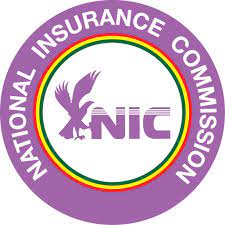As part of measures to mitigate the impact of the Domestic Debt Exchange Programme on insurance companies, the National Insurance Commission will place a moratorium on the Minimum Capital Requirements (MCRs) and Capital Adequacy Ratio (CAR) on the insurers.
This means the MCR and CAR will not be enforced but regulated entities will be required to operate in such a way so as to be able to pay claims and operating expenses.
The current minimum capital requirement of life and non-life Insurance companies is ¢50 million, whilst the CAR is 14.2%.
In a letter to the insurance firms on draft regulatory forbearances to mitigate the impact of the Domestic Debt Exchange on insurance and reinsurance firms signed by the Commissioner of Insurance, Dr. Justice Ofori, the NIC said there will be a moratorium for two years after which the situation will be reviewed and appropriate decision made.
“A set of guidelines will be developed and issued to guide the operation of regulated entities during the moratorium period. These forbearances will be available to be regulated entities that abide by the operational guidelines that will be issued.”
The NIC also announced other measures such as revisions to claim payments timelines, 40% reduction in NIC product approval fees, postponement of the implementation of IFRS 17, creation of regulatory “assets”, among others.
Spreading day-one losses of new bonds over 4-5 years
The NIC proposed that insurance companies be given up to four to five years to write-off the day-one losses on the new bonds. This will require some departure from the accounting standards which require such losses to be written off on day one.
Re-pricing of products
The NIC said it will issue a framework to guide the re-pricing of insurance products in response to changes in pricing assumptions occasioned by the Domestic Debt Exchange programme.
Revisions to claim payments timelines
The NIC stated that the number of working days within which non-life claims are to be paid after the signing of the discharge voucher will be increased from five to 15 days.
Again the number of working days within which life maturity claims are to be paid will be increased from three to 15 days.
Also, irrespective of the type of product, the maximum period within which all processes leading to the payment of claims should be completed is to be increased from four weeks to eight weeks.
Release of up to 50% of Statutory Deposit
The insurance regulator also announced it will release up to 50% of the minimum Statutory Deposit to eligible regulated entities to shore up liquidity upon request. The amount released, it said, shall solely be for the payment of claims and shall be replaced within two years.
















